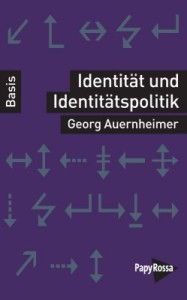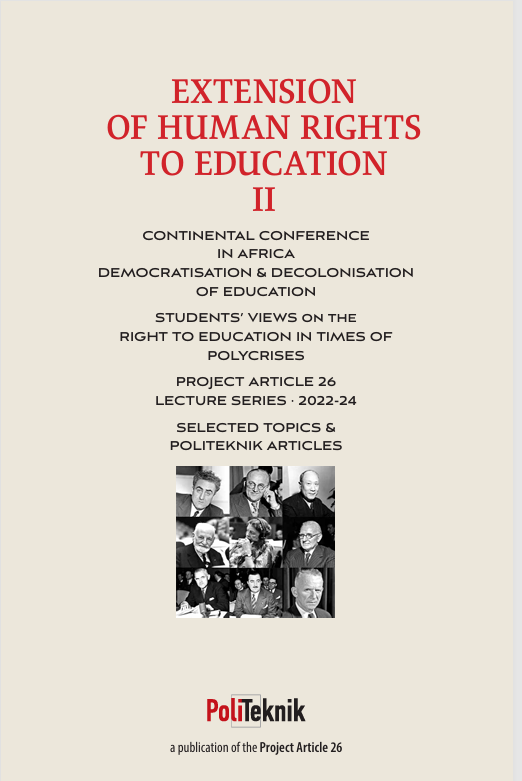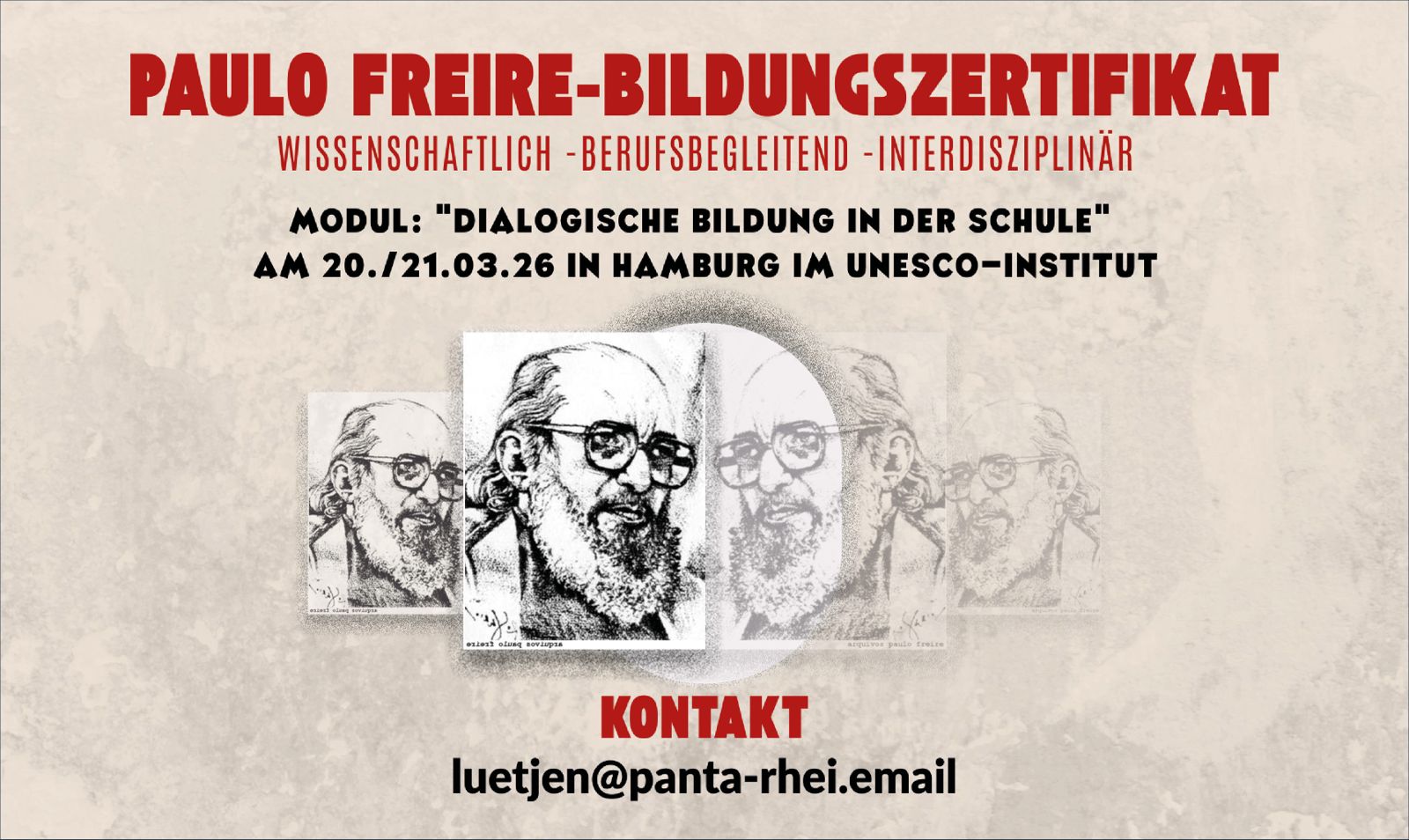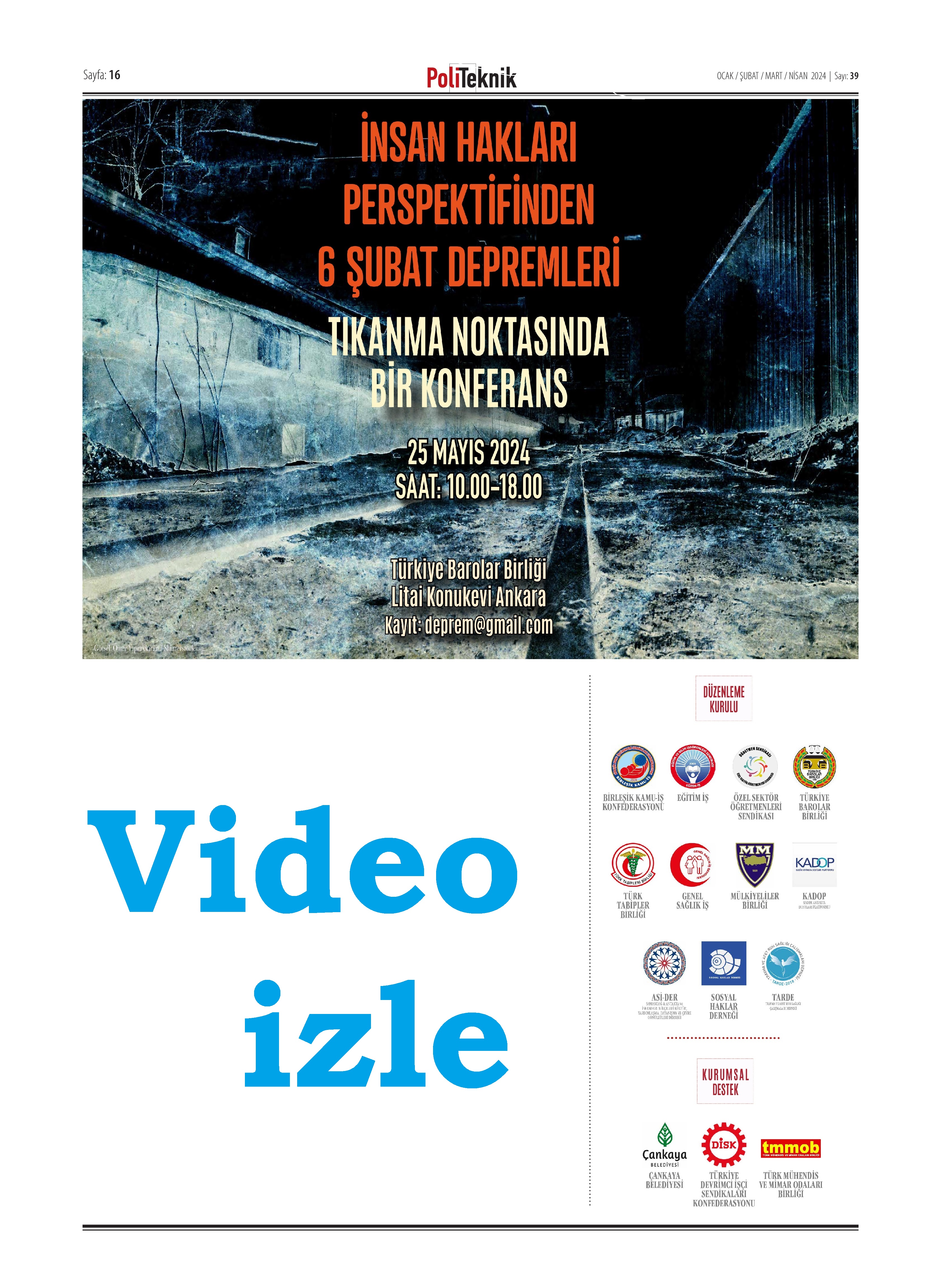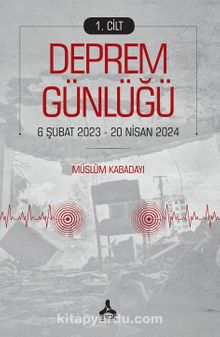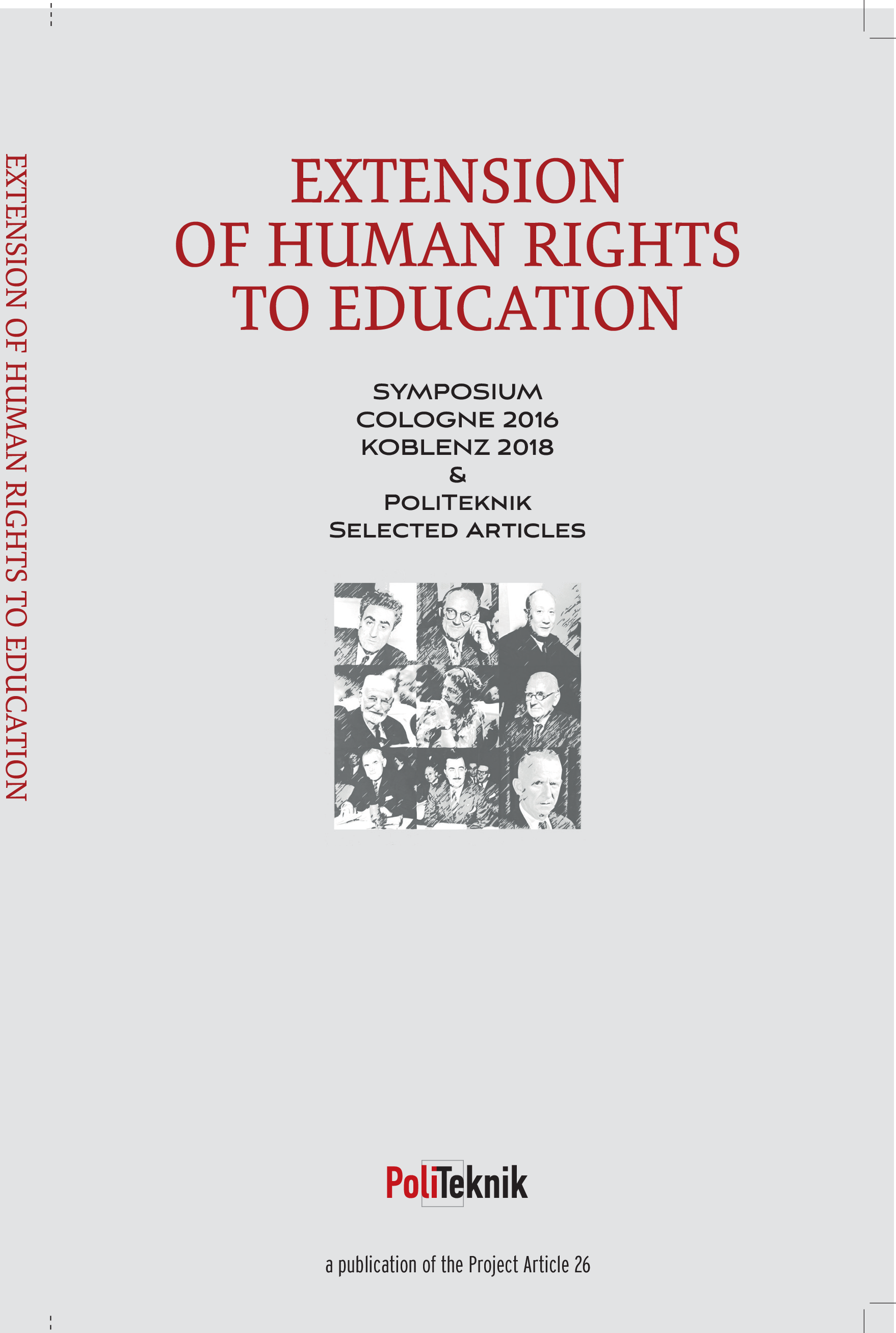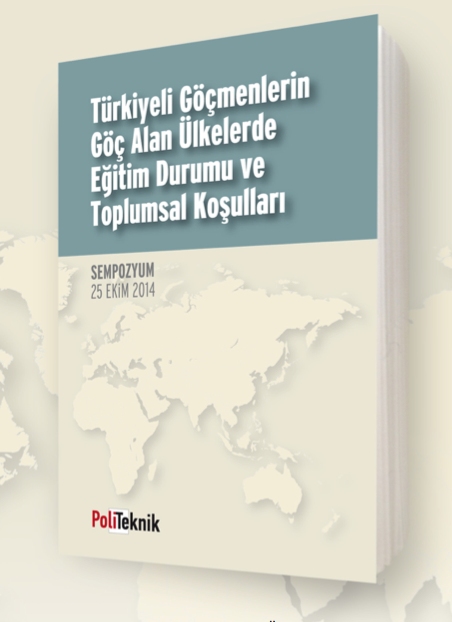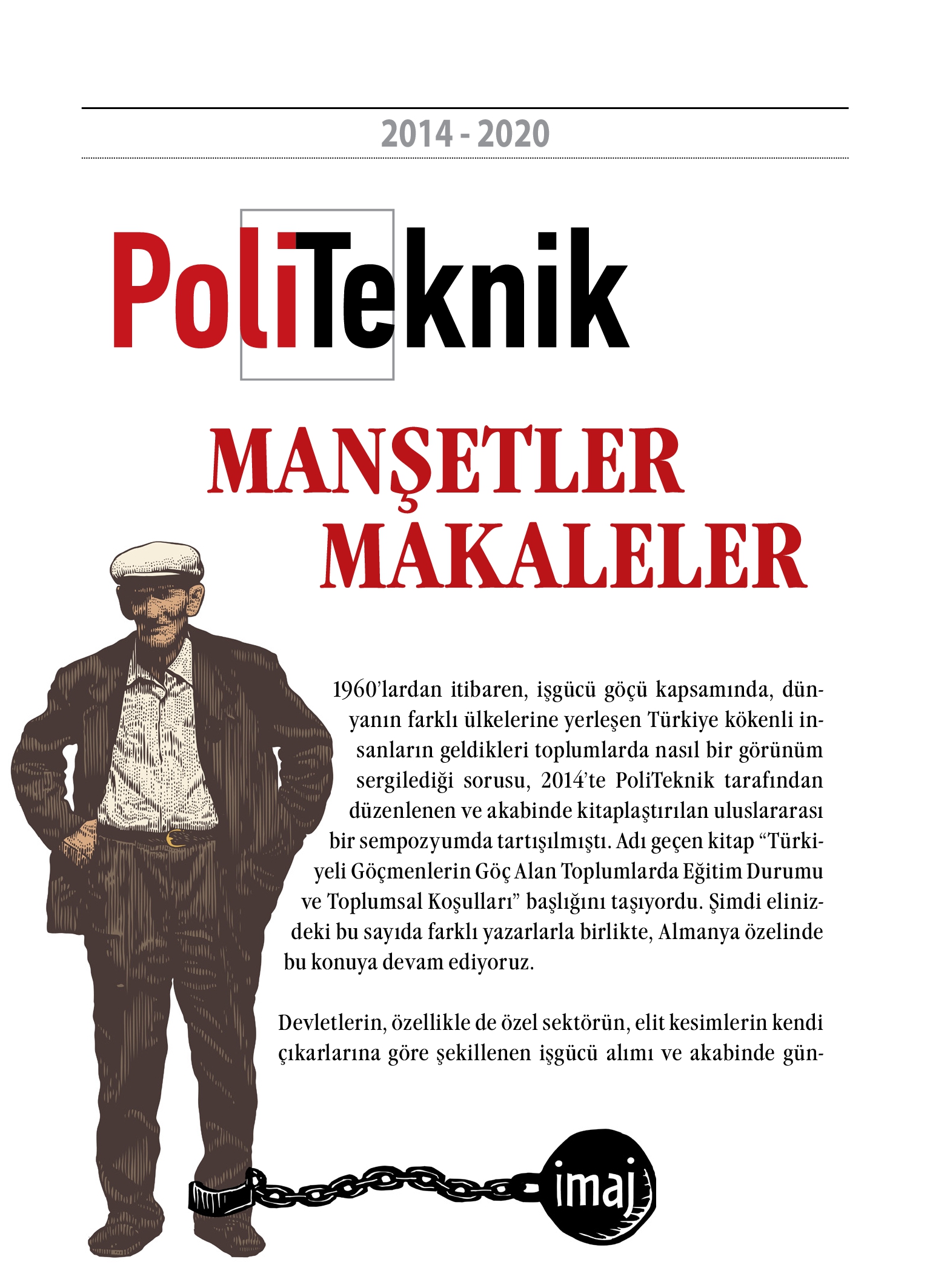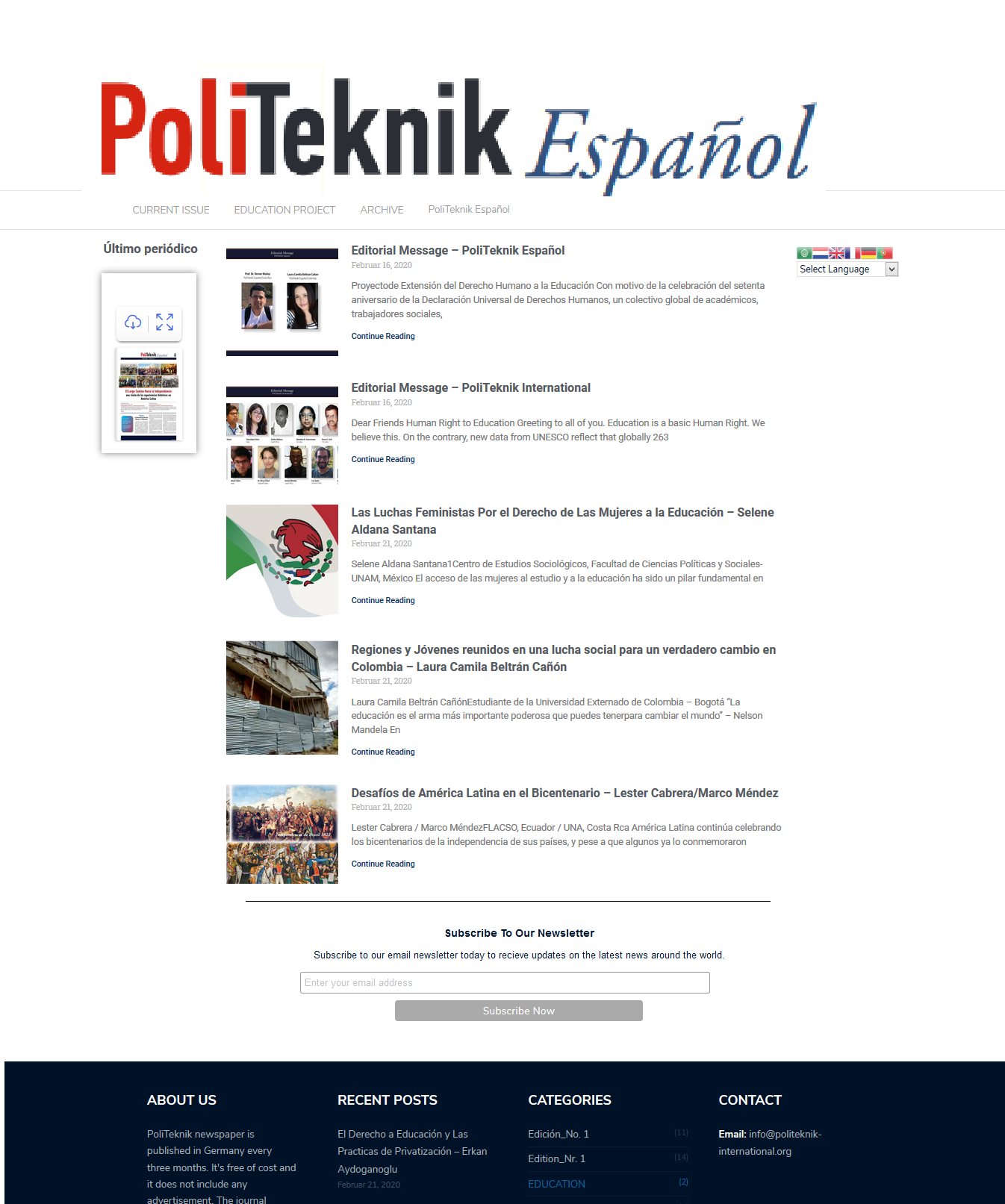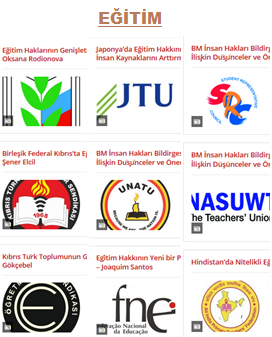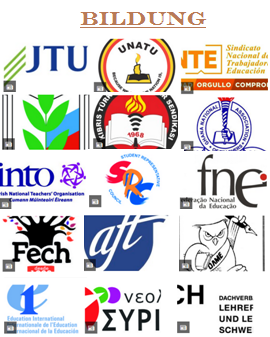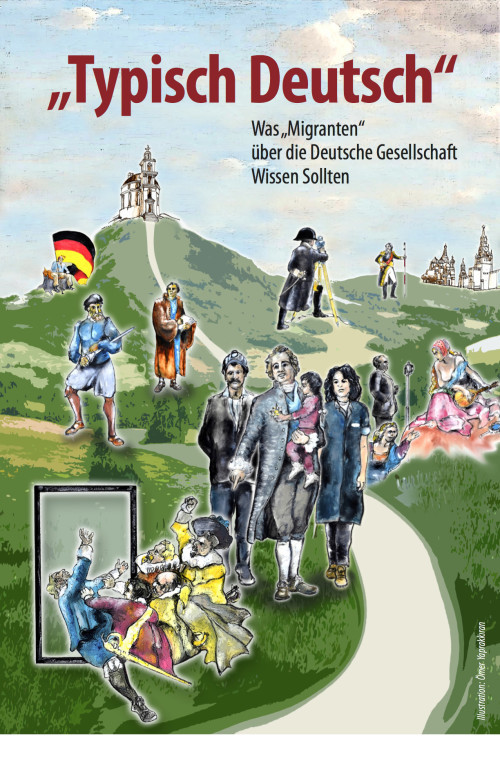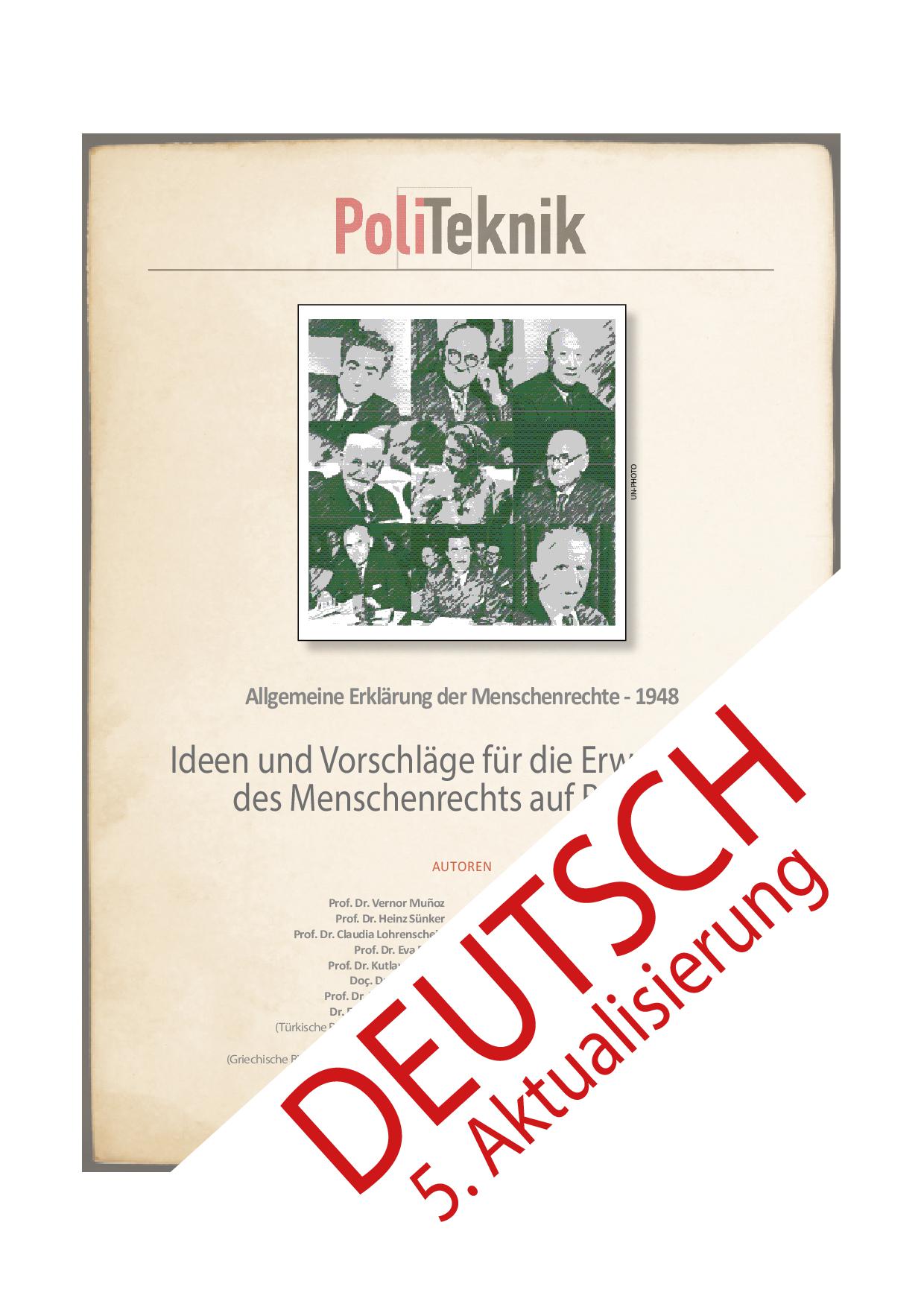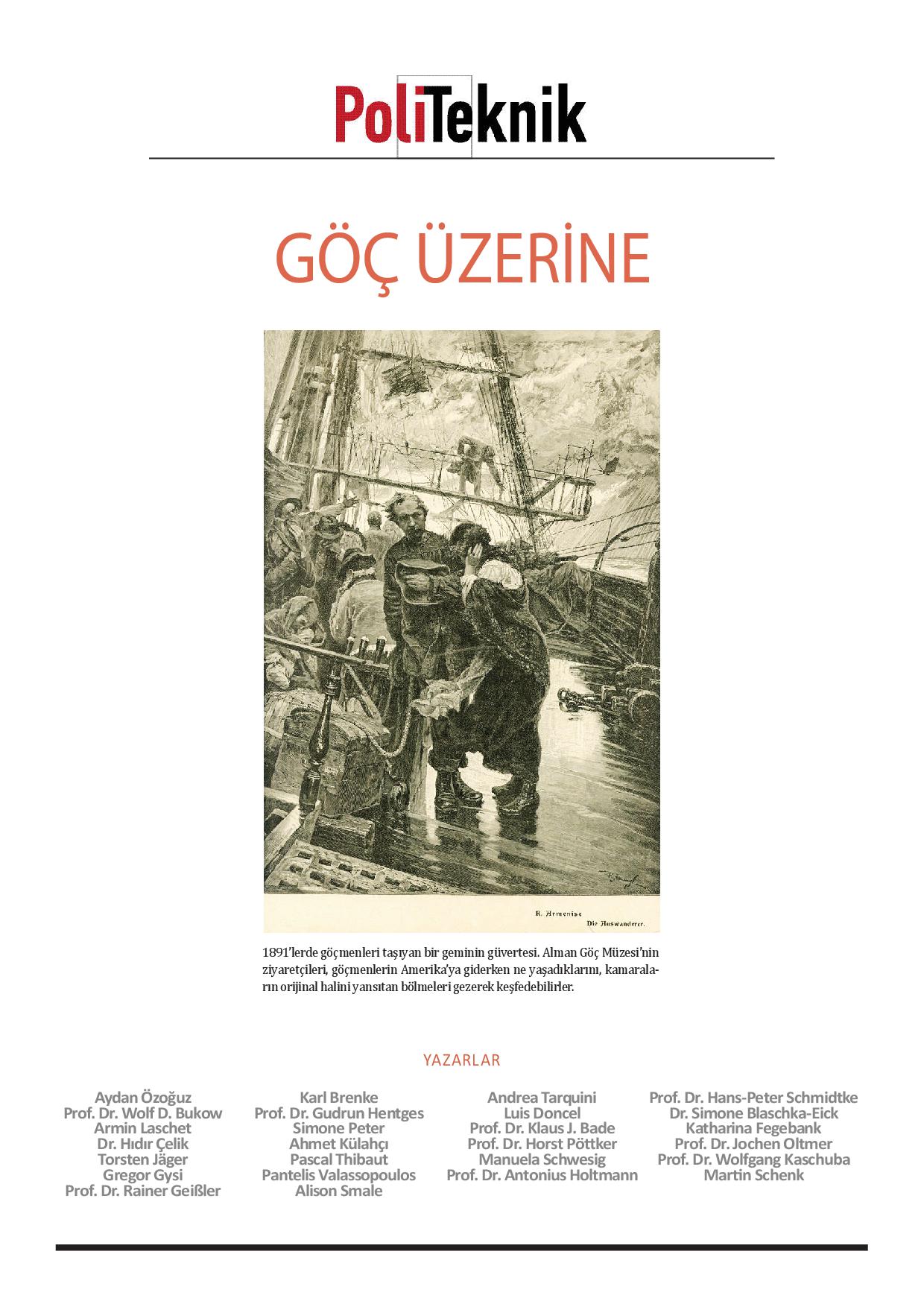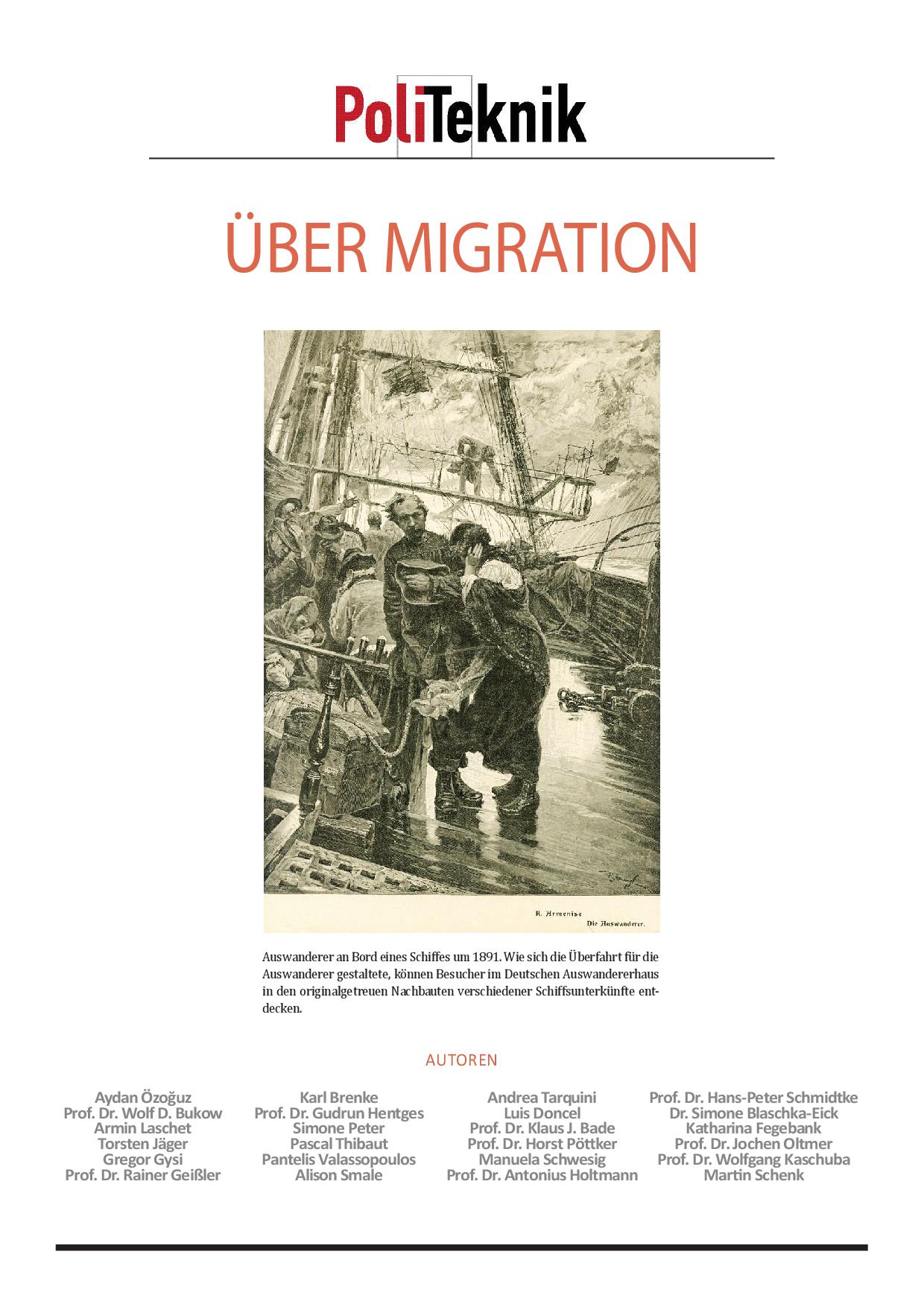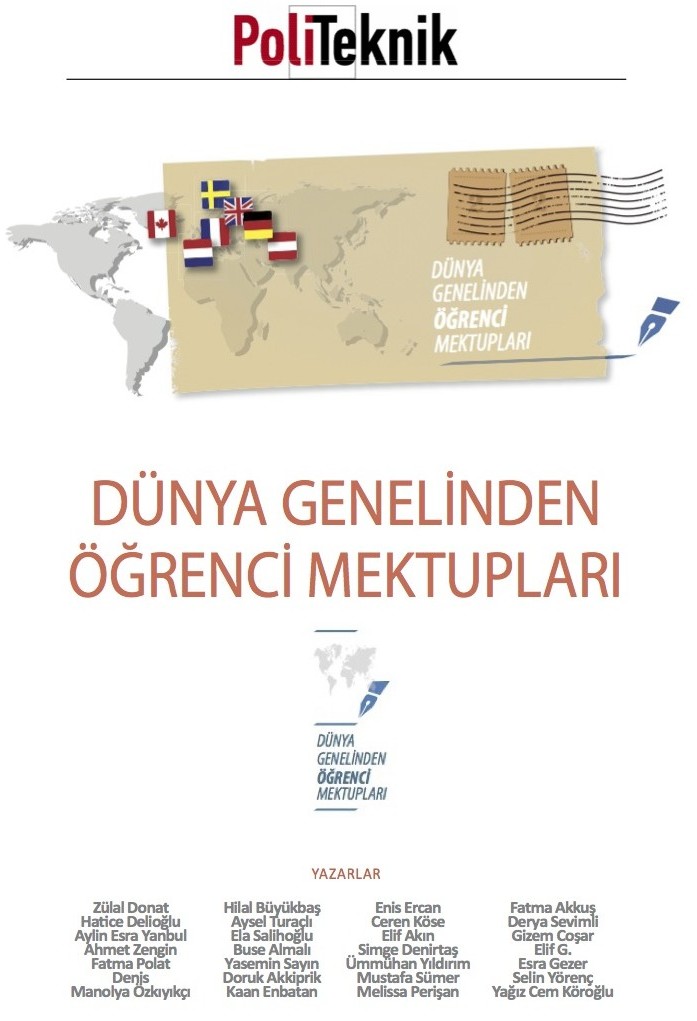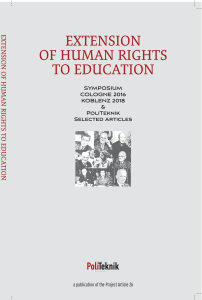 SYMPOSIUM 2016 COLOGNE
SYMPOSIUM 2016 COLOGNE
SYMPOSIUM 2018 KOBLENZ
&
PoliTeknik Selected Articles
The Project “Extension of Human Rights to Education” has been conceptualised as a coun-cil to the UN. Various social actors involved in the extension of human rights to education will work out different aspects of this matter with the aim of formulating a “Declaration on the Extension of Human Rights to Education” to the UN for voting. The project focuses on Article 26 of the UN Declaration of Human Rights which is to be modified/supplemented in the sense of a progressive enlargement. The original deadline for submitting the Declara-tion to the UN was 10th December 2018, the 70th anniversary of the Universal Declaration of Human Rights. This date is considered by management to be the time to fully develop the project, which is expected to take several years. Since the UN General Assembly of 1948 proclaimed the Universal Declaration of Human Rights in resolution 217(A), several inter-national agreements, conventions and declarations have been adopted which seek to pro-vide new ways of approaching the human right to education. On the basis of the concrete experience with these subsequent agreements, and in light of an expanded and deepened conception of education, Article 26 of the UDHR will be re-examined and reformulated by a council, participation in which is open to all the democratic forces of the world. This is the outstanding feature of the project “Extension of Human Rights to Education”. The series of articles published in PoliTeknik under the theme “Thoughts and Recommendations on Extending Education Rights in UN Declaration of Human Rights” since September 2015, have highlighted the global need for the project. This series drew participation from educa-tion unions, scientists and students from Germany, Turkey, Switzerland, United States of America, Cuba, India, Australia, Greece, Chile, Brazil, Spain and Costa Rica. The ideas and suggestions presented in the articles are diverse and wide-ranging. The contributors focus on the content, quality, funding, duration, implementation, target groups, and sponsors of education, engage theoretically with definitions of education, and are broadly critical of Article 26 of the Universal Declaration of Human Rights. The project is designed to take on board concerns of affected and interested parties around the world, and to meet needs that are new or neglected.

